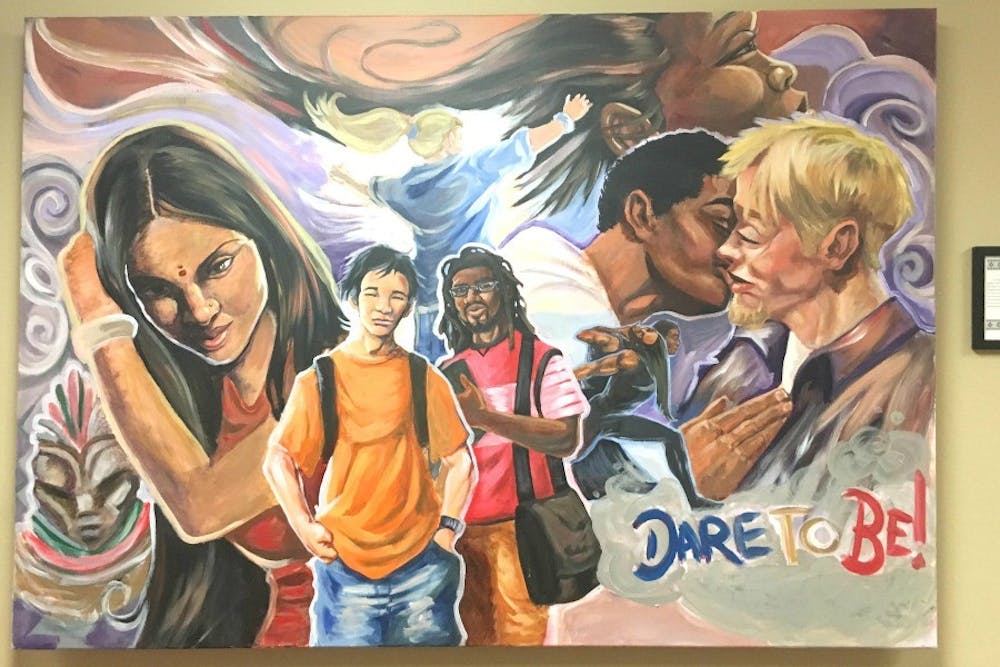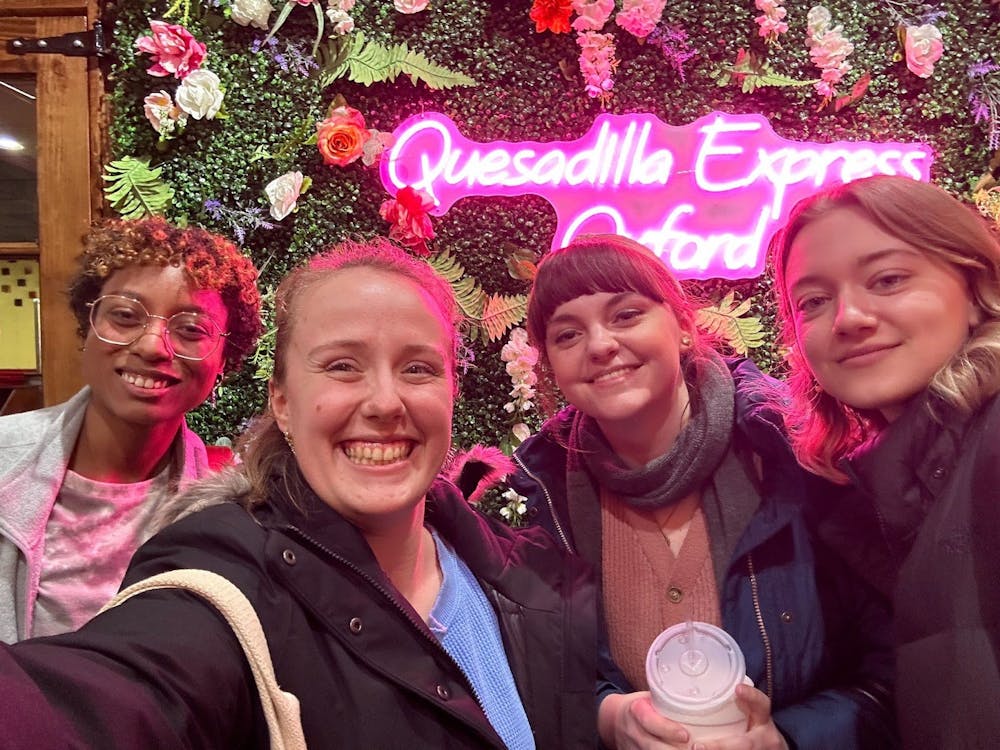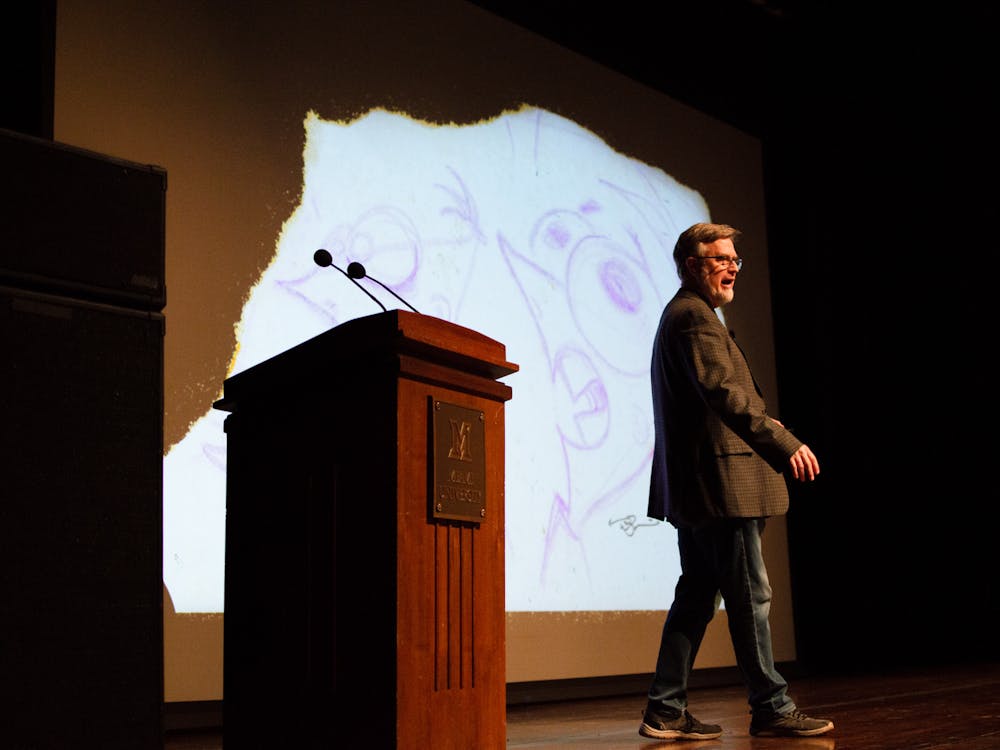By Elizabeth Hansen, Assistant Culture Editor
On the morning of March 17, a mural depicting diversity outside of the Women's Center was vandalized.
A colorful display of students from diverse backgrounds, including two men kissing, was defaced with black Sharpie. Their faces were crossed out and a homophobic slur was written under the words, "Dare to Be!"
"It was not only an attack on our LGBT students, but it was an attack on, and a message to, the Women's Center," said Rhonda Jackson, the administrative assistant for the Women's Center.
Jackson was informed of the vandalism at approximately 8:30 a.m. Thursday morning. She immediately called MUPD and filed a report.
"It was one of those things, as an ally, that affected me as someone who advocates for the LGBTQIA-plus-plus-plus community," said Jackson. "Even in all my cisgender privilege as a white cis female. I felt uneasy."
The Women's Center was established in 1991 to educate the university about gender equality through various programs and events and to provide a welcoming space for people of all sexual orientations.
"We always deemed the Women's Center as a safe, brave space to be, and it felt different after that happened," said Jackson.
The mural was painted by Miami alumnus David Butler and has been hanging on the wall outside the Women's Center for the past three years. A week after the mural was defaced, Butler left his home in Columbus to help restore it.
He and his wife spent five hours painting over the vandalism, reversing the hateful crime.
"It was so wonderful of David and his wife to come over on their own. They didn't even ask for any kind of compensation, they just wanted to make it right," said Jackson. "That was really a beautiful thing to see because they knew how powerful that mural was."
But what made the restored mural so powerful was not just the five hours the Butlers spent painting, it was what David intentionally left on the man's face.
Enjoy what you're reading?
Signup for our newsletter
Butler fashioned the hateful Sharpie marking into a scar on the man's face, as a reminder that even in brave, safe spaces, incidents still happen.
"We were really grateful that David could work that in and make it a part of the history of the mural," said Jackson.
In response to the vandalism in the Women's Center, the Spectrum Executive Board, the GLBTQ Services and the 1809 LGBT Alumni Association Board published a letter to the editor in Tuesday's paper expressing their concern and support for victims of these acts:
" … Each of you are someone worth respecting and affirming just as you are today and as you might be tomorrow. Our community thrives when all members (students, faculty and staff) are accepted and celebrated for who they are, are discovering, or are becoming. We collectively want you to know that we are here for you, today and always," read the letter.
First-year Kevin Vestal said that the act was hard for the LGBTQ+ community to stomach.
"As a gay person, you endure minute things that, at the end of the day, you sleep off," Vestal said. "But these big acts of violence, you can't sleep them off."
While discriminatory acts against the LGBTQ+ community are still prevalent, steps have been made to improve the safety of Miami's campus for these students, the most recent of which is the installation of gender-inclusive bathrooms.
Mallen has been working to develop a non-conforming gender policy since 2014 and further educate the student body about the LGBTQ community. She sees this incident as a reason to move forward and raise awareness for hate crimes and biases.
"It's important for the larger community to know that this isn't going to be hidden under the rug," said Mallen. "Because it was a defacement and it's vandalism that affects a community, it is a hate crime issue. And that will be reported as a hate crime to the federal reporting systems that we have. Miami will have to own that it did happen on our campus."
Investigation of those responsible for the vandalism is still ongoing.




